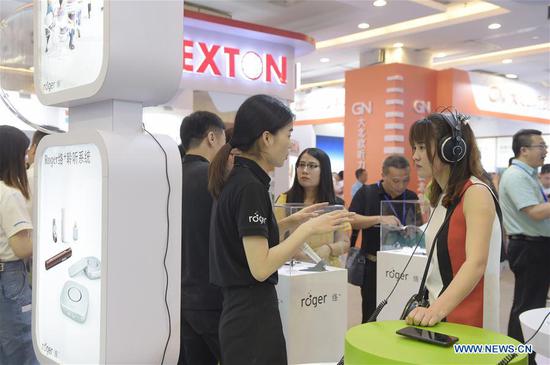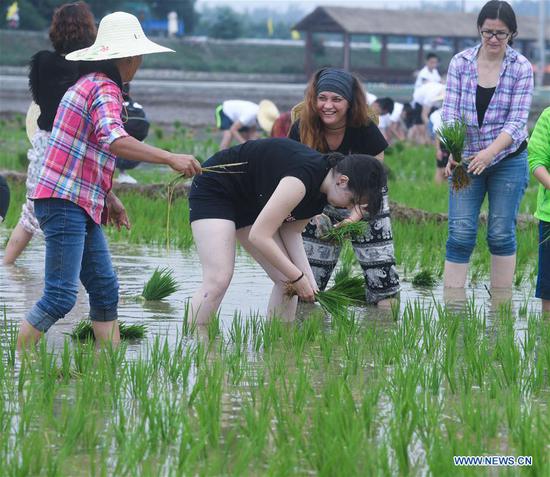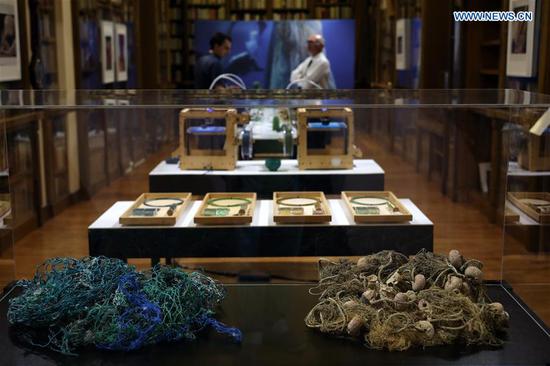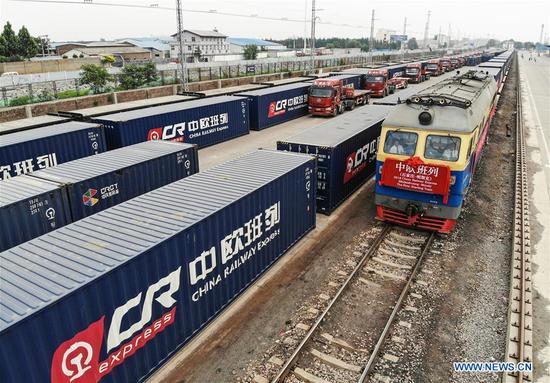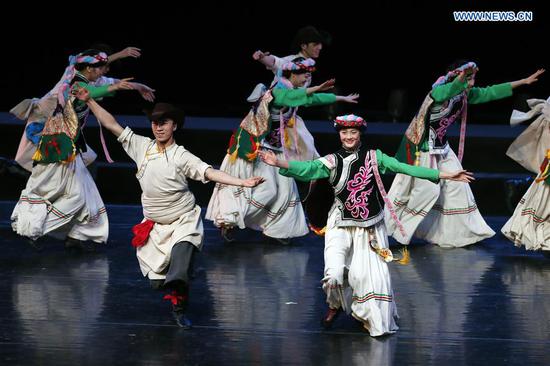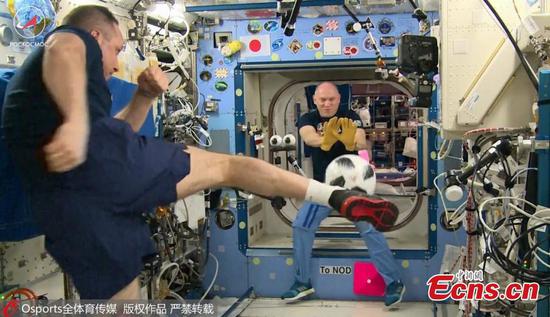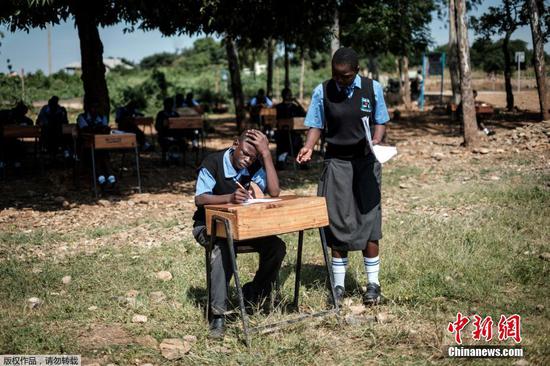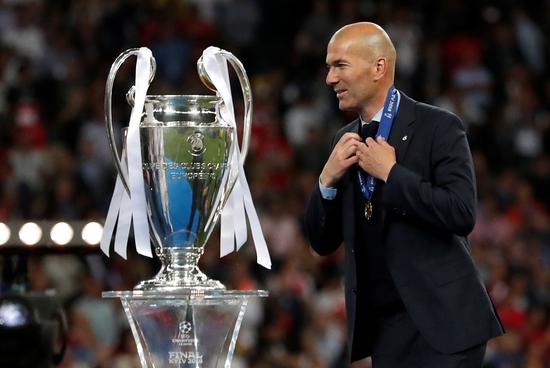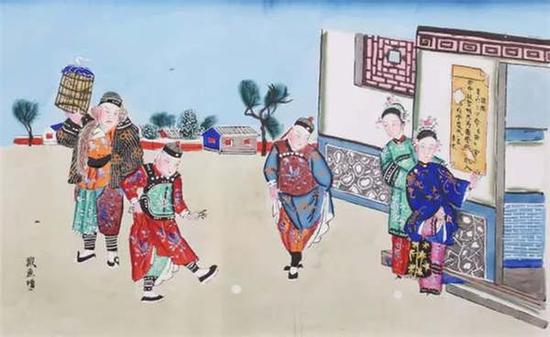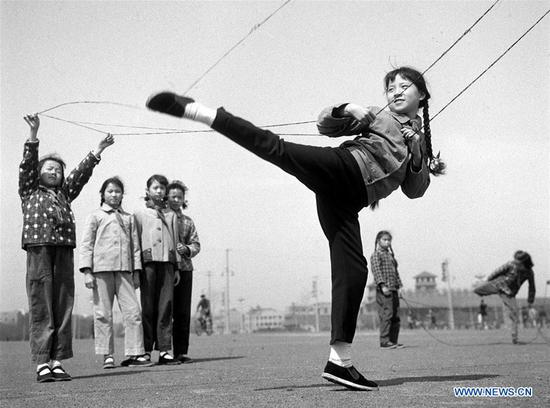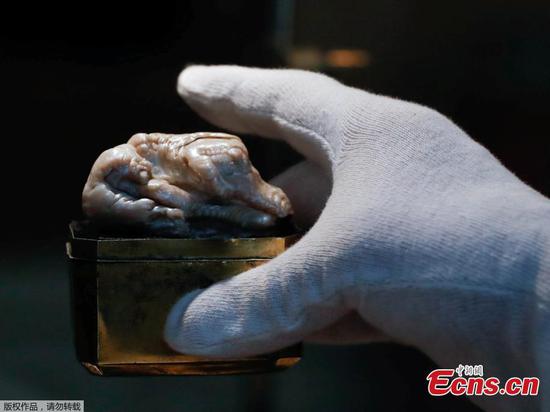Years behind bars
Different from many aggressive businessmen, Zhang is soft-speaking and elegant. No matter for an interview or to stand trial, he always wore suits and had good manners.
Zhang was released in 2013 after getting commutations twice in prison. Even during the years behind the bars, he did not stop from reading and researching. "Reading is what helps me survive the most miserable and helpless moments," said Zhang, who talked to China Daily in an exclusive interview last week.
Mostly, he read English-language books and said his English has improved greatly. He was able to obtain four patents in terms of technology development during his imprisonment.
The prison life did not change Zhang's hardworking mode. He is still strict with himself and calm when handling business.
"He is a man of actions," said a man close to him. "He won't wait for the next day to solve issues."
Having asked what he thinks of the lost years, Zhang said: "One should not live in the past but in the future, with rational pursuit and expectations."
He also expressed gratitude to his entrepreneur friends who constantly visited him in prison and appealed on his behalf.
When Zhang gave a public speech at the China Entrepreneur Forum earlier this year for the first time since his imprisonment, almost all executives and entrepreneurs stood up and applauded, including Jack Ma, founder of Alibaba Group.
"I'm honest with my heart and could face the test of history. I have no regret or hatred," Zhang said in the speech. "But I require to thoroughly rectify my wrongful case, and my name should be completely cleared."
Progress of times
Yan Maokun, head of the top court's research office, said the correction of Zhang's case showed the central leadership's determination to protect rights of entrepreneurs and their properties.
It also reflected the country's equal protection in a diversified ownership economy, as well as its encouragement of the private economy, the highlight of the rule of law and the respect to human rights, he said.
"Justice is sometimes late, but will never be absent," Yan said.
"Correcting miscarriages in Zhang's case is also to remove improper regulations on the nonpublic economy, eliminate barriers for its developments, ensure fair competition in the market, create a sound business environment and inject dynamism into private enterprises."
Property protection has been effectively strengthened since the 18th National Congress of the Communist Party of China in late 2012. In 2016, the CPC Central Committee and the State Council issued a guideline on better protection of property rights in an effort to shore up social confidence and promote social justice.
The guideline requires governments at all levels to insist on the equal, comprehensive and legal protection of property rights and also stipulates the nonpublic economy cannot be violated.
In 2016, the nation's top court also urged all courts to urgently review property-rights-related disputes dating to 1978 and to pay attention to the court rulings in which private enterprises were found to engage in misconduct.
A document released after the annual Central Economic Work Conference, on Dec 20, which set the tone for China's economic policies this year, also asked for the review and for courts to rectify some controversial property rights disputes that have raised social tensions.
A week later, the top court announced the retrial of three major cases linked to property rights, including Zhang's case. The other two are related to Gu Chujun, former chairman of Guangdong Kelon Electrical Holdings Co, and an equity transfer dispute.
Chen from Renmin University, who has been following Zhang's case closely, said the retailer's new innocent verdict "is the best implementation of the central leadership's requirements to increase efforts to protect properties and rights of entrepreneurs".
The case is also an example for grassroots courts, "showing how to hear such a case in regulated ways", he said.
Private enterprise contributes much to the economy in taxes and commerce, "but we have to admit we failed to realize or even look down on its value and significance in the past," Chen said.
Zhou Guangquan, the law professor from Tsinghua University, said Zhang's case should also point to the misunderstanding of laws, because "judges at that time might not have distinguished economic disputes from economic crimes".
He said such a wrongful application of laws in hearing property-rights-related cases may not be rare in courts in the past due to a lack of judicial experience.
"To avoid such wrongful convictions, courts must overcome interference from local governments and improve the accuracy of law applications," he said. "We cannot make new wrongful judgments while overturning convictions wrongly made in the past."
Looking ahead
While the country is moving forward to better protect the property right of businesspeople, Zhang also is looking forward-for himself and for Wumei.
Technology has always been a driver for Zhang's business. "I could have become a programmer and got involved with e-commerce," Zhang said jokingly. "I was in retail by chance."
Humble and cautious about Wumart's expansion plans, he is still a fighter in the industry. Earlier this year, Wumart acquired 21 Lotte Mart stores in Beijing from the Republic of Korea's Lotte Shopping for about 248.5 billion won ($230.2 million). Wumart now has more than 1,000 stores in North, East and Northwest China, and the retail giant has earned revenue of more than 50 billion yuan as it continues to march into northeastern and southern regions.
"For me, my mission is to continuously improve digital retailing, upgrade the unification of online-and-offline experiences, provide safe and fresh food for society and provide a better income for Wumart's employees," Zhang said. "Persistence matters," he added. "Plus a positive attitude and belief in justice."











